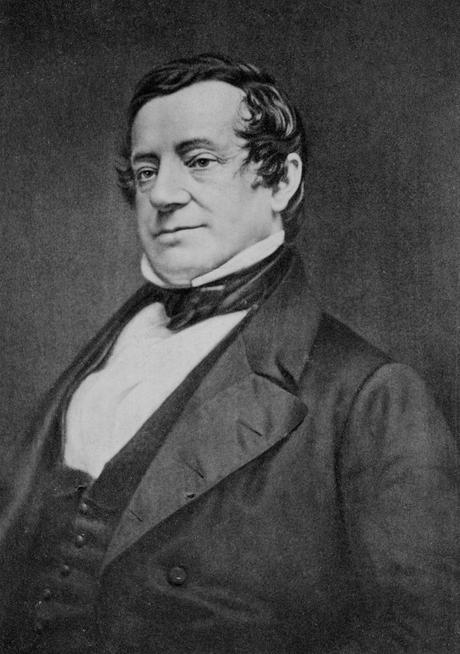 From the Library of Congress, via Wikimedia Commons
From the Library of Congress, via Wikimedia Commons
No writer is “on” all the time. I often marvel that, with the busy lives they lead, they manage to finish any books at all. Even so, not all are uniformly good. Following up a biography of Washington Irving with a book by that eponymous title, this was my first foray into the Twayne’s United States Authors Series. Written by Mary Weatherspoon Bowden, this volume (Washington Irving) seems fair-minded and honest about Irving and the irregularities of his writing. My impression, not having read all his work, is that he started out great and became good further down the line. Not that I’m in any position to judge. We read and we like what we like. Bowden pretty much goes through all of Irving’s writings—sometimes story by story—giving a sense of what they’re all about. (The book was released in cloth with no real cover image, so enjoy Irving’s smile instead.)
As famous and influential as Irving was, his reputation as a writer has been in decline for many decades. One reason for this is that his first major twentieth-century biographer, Stanley T. Williams, apparently despised him. So much so that he wrote a two-volume biography demonstrating his faults as a writer. This demolition job meant that works like Bowden’s had to try to counter the prevailing opinion of Irving’s ability. Bowden shows how carefully planned out many of his works were without denying that Irving had to try to make money from his writing. The thought at the time seems to have been that literary pursuits were best left to the wealthy—those with leisure to indulge in letters. Irving showed that it was possible to write your way to a reasonable living.
Of course, not all of his writing is that good. And several volumes of it are “history.” Today you have to earn an advanced degree, or at least a masters, before you can pass yourself off as a historian. Irving did it the old fashioned way. He read as much as he could get his hands on and synthesized it. Today he’s not really remembered as an historian, or as a statesman. He’s known as the author of a few, mostly brief, American classics. Even though Bowden writes of Irving appreciatively, she doesn’t really inspire you to run out and read all his work. He did have a tremendous output for the time and was an extremely influential author. Nevertheless, others came and surpassed him, even as they were his contemporaries. Still, it seems there ought to be some credit in being first, and some integrity in actually managing to live by the written word. Irving is worth another look.
